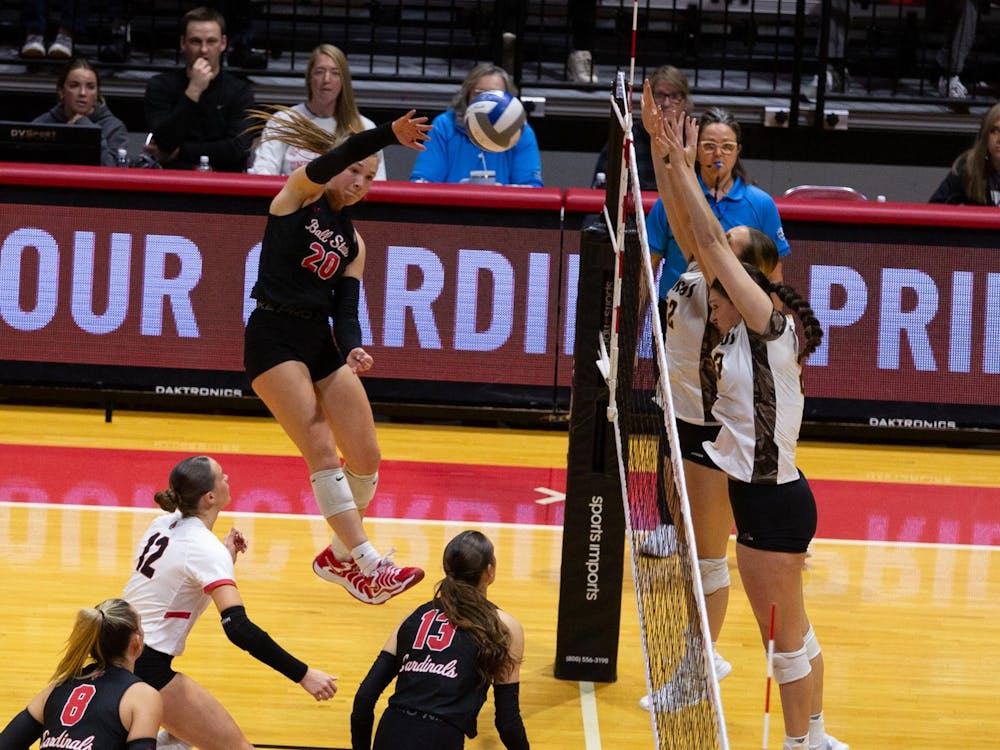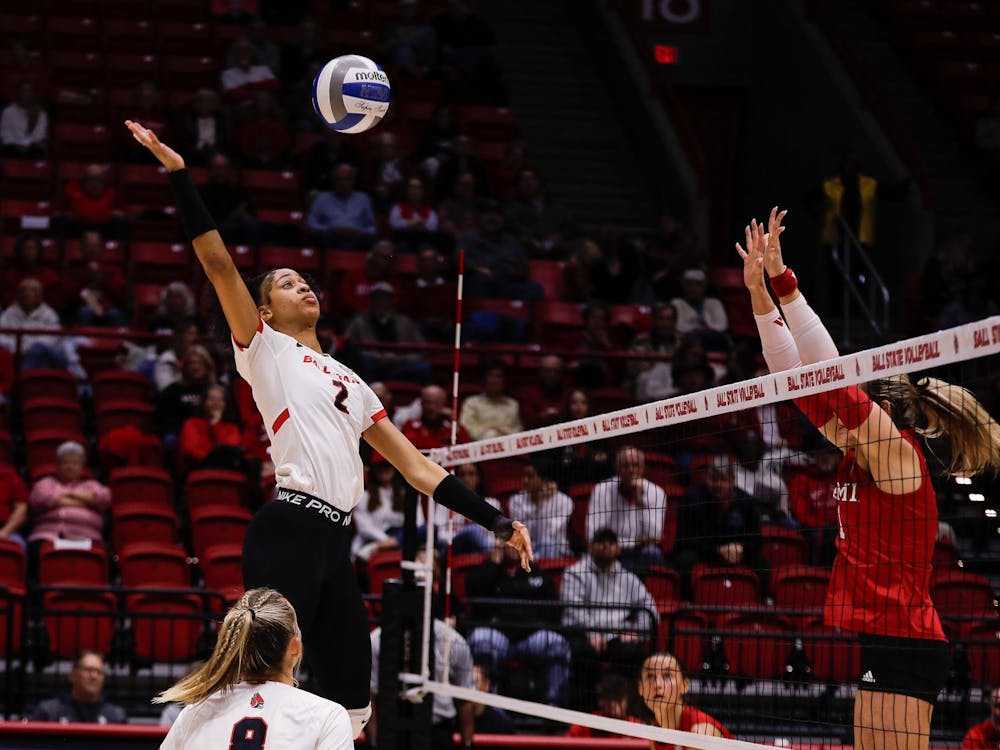The Mid-American Conference is changing the format to its women's volleyball tournament and moving it from Toledo, Ohio to Geneva, Ohio.
Less clear, however, is if changes will benefit the regular season champions as advertised.
"We're trying to make our championships relevant," Tom Collins, Ball State athletic director, said. "We want to give the best teams the best chances to get into the NCAA Tournament."
The 2011 tournament will feature eight teams instead of 12 as in the past. The format change eliminates the first-round games, which were held at campus sites.
The elimination of teams was not popular among coaches who preferred to keep all 12 teams eligible for the tournament.
"As a coach, I favor the 12-team format," Bowling Green coach Denise Van De Walle said last month prior to the final vote on changes. "The [Rating Percent Index] of the conference has gotten much better since we last visited and made a change to include everyone. Everyone getting into the tournament makes for the most exciting format."
Ball State coach Steve Shondell has been outspoken about the need to reward the regular season champion.
Along with the elimination of the campus site games is the elimination of the reward to the regular-season champion: a first-round bye.
Athletic administrators and coaches from around the MAC and a MAC official said they didn't know or couldn't say why there was a difference in perspective among coaches and administrators.
"There [were] a lot of factors considered that went into the decision and should stay behind closed doors to avoid getting into politics," Karin Lee, Ball State associate athletic director who served on the committee that recommended the changes,said.
Jeff Bacon, MAC assistant commissioner for championship and sport programs, was noncommittal to tie-breaking procedures if multiple teams were to tie for the eighth and final spot in the tournament.
"At this point current tie-break procedures are in place," he said. "But that could change by time the tournament in the fall."
Shondell proposed the top four seeds hosting the lower four seeds in quarterfinal matches at campus sites — much like this year's first round format — before going to a neutral site for the semi-finals and championship matches. His proposal did not gain support.
Bacon and Collins likened the format from last season's MAC Tournament to a risk-and-reward scenario. The more teams in the tournament, the higher the risk of a top seed being upset and ending the conference's efforts for multiple bids to the NCAA Tournament.
"We're trying to protect our high RPI teams," Bacon said. "We're doing that by having one less round and less teams in the tournament. We want to eliminate some of the risk."
Tuesday's announcement marked the end of the tournament's six-year run at the SeaGate Centre in Toledo. In its place is a two-year agreement for the tournament to be held in Geneva, located 45 minutes northeast of Cleveland.
"Having the tournament in a neutral city is a really positive step," Shondell said. "The location sounds very nice and the facility looks amazing from the pictures I've seen. I'm very pleased with having a fair neutral site."
Bacon touted Spires Academy for the benefits it can provide the MAC with marketing, promotions and providing a brand-new facility specifically built for volleyball.
Spires Academy has also partnered with the Greater Cleveland Sports Commission to enhance the tournament's profile in Cleveland and surrounding areas of northeast Ohio.
"We're a fairly large facility that hosts local, regional, national and international competitions," Jeff Orloff, Spire Academy spokesperson, said. "We want to be involved with top quality events and we know we will be able to provide fans, parents and student athletes with a lot to enjoy when they get here.
"The teams from the western part of the MAC will feel the extra driving time was well worth it."




